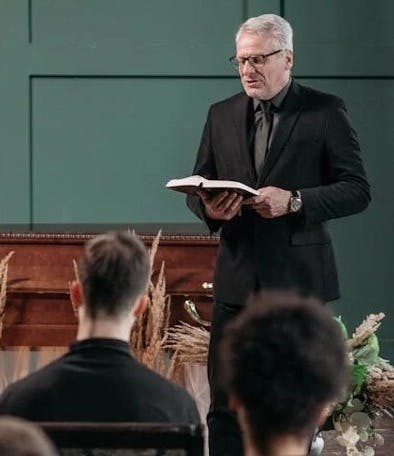
5 Ways the Modern Pastor Hurts the Church
Why it's time to re-think the pastoral ministry
The vast majority of Christians attending church regularly encounter a church pastor at least once weekly, but I've learned that the pastoral ministry is a poor way to organize church worship. This post is not intended to cast aspersion on anyone in particular. I've had some great pastors in the past 30 years, many of whom are sincere in their approach to ministry and have a heart for the people of God. However, none of them were perfect. After much reflection, I believe the modern pastoral office is due for a restoration.
Here are 5 reasons why.

It's a poor model for church leadership - The role of the pastor is an important role within the church. It always has been, but the modern pastoral role isn't like the pastoral ministry you see in scripture. Early pastors were men who received their training for the pastoral ministry by serving in the local church. It wasn't a paid position, nor was it an administrative function where the pastor served as a manager over a pastoral staff. Many modern pastors get their leadership training from business courses and military service, which teach worldly leadership principles based on a top-down hierarchy. This is the opposite of what Christ taught in Matthew 20:20-28 and elsewhere. A careful reading of scripture regarding the qualifications and duties of the pastor shows that the pastoral role is not about "leading from the front" so much as it is serving from the bottom.
Pastoral training has been divorced from Christ's original intent - Almost every single pastor of a church today received their training from seminary or Bible college. This is a poor way to receive pastoral training. Men are raised in a church then sent off to sit in a classroom for a number of years, bury their noses in books, and then are sent to another church (many times, in another part of the world or country than where they originated) to serve as pastor. As a result, many pastors are not familiar with the local cultures where they are serving, and they may spend an inordinate amount of time learning about those cultures before they can be effective (if they learn at all). Pastors should receive their training for ministry at the local church where they can be mentored by a local peer. This allows the pastor to build relationships from the ground root and become a part of the local culture prior to attempting to influence it through ministry.
The pastor-lay member divide puts all the pressure on the pastor to perform - The Bible never uses the term "laity". It's a human concept that has served to divide the people of God between professional ministers, or clergy, and everyone else. In 1 Peter 2:9, however, the church is called a "holy nation" and a "royal priesthood". The indication is that all believers are equal in status and importance. The only distinction beyond the priesthood of all believers is that Jesus Christ is our High Priest. As priests, each of us has the power of the Holy Spirit to exercise the spiritual gifts that edify the body and administer grace to each other and our neighbors. Pastors are special gifts to churches whose primary function is to equip the saints to deliver their priestly duties. The modern church has moved beyond these distinctions to give a special status to pastors and other clergymen that would be foreign to the early church. 1 Corinthians 14:26 shows that the Apostle Paul expected all the members of a local assembly to participate in the worship service, not sit passively to be "ministered to" by a professional.
The modern pastor does too much - Pastor burnout is a real thing. One reason for this "burnout" and lower job satisfaction is that pastors are under too much pressure to perform. In many churches, pastors are the only people who visit the sick, minister to couples experiencing marital problems, and carry the ministry load at the local church. As noted above, their primary function is to equip the rest of the church for ministry. When all the pressure is on one man, or a few, to carry the weight of all of the ministry of a church, we should expect some burnout. It's not surprising that many pastors are falling under the bricks. It's surprising that it doesn't happen more often.
Pastors are either overly revered or overly criticized - In almost every church today, there are people who revere their pastor too much, and there are often people who criticize their pastor too much. Both put undue pressure on the pastor to be something he is not intended to be, or to pretend to be something he isn't. Pastors must walk a thin line between challenging the status quo and encouraging rebellion. The position has become a human-centered ministry rather than a Holy Spirit-guided occupation. In some churches, the Holy Spirit is quenched because either the pastor or some of the lay people in the church exercise too much control over the worship service, its direction, and its execution from week to week.
I am not suggesting that the church not have pastors. Nor am I saying that the church model itself should be nixed. What this post is intended to convey is that the modern pastoral office has led to a dysfunctional church that is losing its influence on the culture primarily because it is focused on human-centered concerns that stifle its effectiveness. That isn't to say that God isn't moving among His people nor that there aren't churches performing excellent ministries. But ... Christians must come to grips, here in the 21st century, with the reality that fewer people are taking the church seriously and the modern pastoral ministry is a huge contributor to that reality.
Allen Taylor is the author of I Am Not the King.
